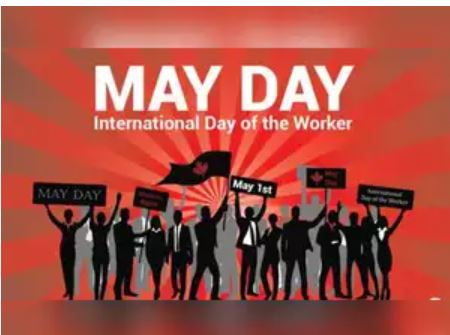- Seven facts to know about May Day
The National President of the Nigeria Labour Congress, Joseph Ajaero, on Sunday, vowed that the labour union will create a “hall of shame” for judges that undermine the tenets of the judiciary and come up with ridiculous judgements on election petitions.
Ajaero, who spoke in Abuja at a joint briefing with members of the civil society group under Labour and Civil Society Front stressed the need to rescue the judiciary.
The movement, comprising several civil society and youth organisations, insisted that the Independent National Electoral Commission had seriously damaged the country’s democracy with its poor showing at the elections. They also vowed to name and shame corrupt leaders.
Co-conveners of the movement included Olisa Agbakoba, SAN, Comrade Shehu Sanni, Ambassador Nkoyo Toyo, Professor Udenta Udenta, Salisu Mohammed, and Olawale Okunniyi.
NLC was represented by its president, Joseph Ajaero, and Trade Union Congress had its General Secretary, Nuhu Toro, in attendance.
According to the NLC boss, the judiciary has set so many states and institutions “on fire with ridiculous judgements and must answer certain questions from Nigerians.”
He said, “The judiciary has so many questions to answer, if they failed to answer those questions within a short time, we would create a hall of shame for those judges that come up with judgement for those judges that create such problems, that will happen soon. There is a need for the NBA, for all arms in the judiciary, to the bar benches, and all to speak out on what is happening in the judiciary and whether the judiciary is still the last hope of the common man.
Now the destiny of the country is in our hands. It is either they fulfil it or they are betrayed once again, when they tell you to go to the court, they’re telling you that that is the end of the matter. Somebody will steal yam and say go to the court. On what basis are those statements being used? That’s the level of ridicule that the judiciary has brought and as Nigerians, we all need to come out to rescue the judiciary, or else there’ll be no need to continue going to court.”
Addressing journalists at the end of their meeting at Labour House, in Abuja, yesterday, the spokesperson of the CSO, Nkoyo Toto, accused INEC of attempting to destroy democracy by failing to uphold the provisions of the Electoral Act and even their own set rules.
Toyo stated, “This 2023 general election became an anti-climax, dashing the hopes of Nigerians for credible elections and denying citizens the emergence of qualitative political leadership across Nigeria.
“Clearly, INEC in cahoots with some members of our political class has driven a death nail into the democratic experience of most Nigerians, thus, leaving the electorate despondent to resort to self-help in their effort to salvage whatever is left of their vibrant political engagement with the 2023 elections.
“Unfortunately, the majority of Nigerians, especially the youths, who fought with patriotism to reset their country through the ballot box, are now wondering if elections have not become the tool for legitimising the corrupt takeover of Nigeria,” he added.
Seven facts to know about May Day
International Workers’ Day, also known as Labour Day, is celebrated on May 1 every year to honour the working class across the world.
As Nigeria joins the rest of the world to celebrate the 2023 International Workers‘ Day, here are seven facts to know about the day set aside to recognise workers’ contributions and sacrifices to nation-building.
1. It is celebrated as a national public holiday in many countries. The history of Labour Day goes back to 1886 when a Labour Union in the United States decided to go on strike with the sole demand that workers should not be allowed to work over eight hours a day.
2. The origins of Labour Day can be traced back to the late 19th century when workers across the globe began demanding better working conditions, fair wages, and shorter working hours.
3. International Labour Day is celebrated in more than 80 countries, including India, Cuba, and China. People in different parts of the world hold marches on this day to promote the rights of working-class people and to protect them from exploitation.
4. The tradition of Labour Day dates back to 19th century America. On May 1st, 1886 workers in Chicago organized a strike to demand an eight-hour workday. However, workers across the US came together to demand their rights and to fight for better working conditions after a bomb exploded at a labour rally in Haymarket Square.
5 In 1889, the International congress of socialist parties met in Paris and decided to celebrate Labour Day or Worker’s Day on May 1.
6. The first labour day was celebrated in India on May 1, 1923, in Chennai. The first May Day celebrations were organized by the Labour Kisan Party of Hindustan. The leader of the party, Comrade Singaravelar arranged two meetings to celebrate this occasion.
7. Labour Day is celebrated around the world to raise awareness of the rights of working people and to protect them from exploitation. It also serves as a reminder of the important role played by the working class in our society.
Credit: Punch







Leave a Reply